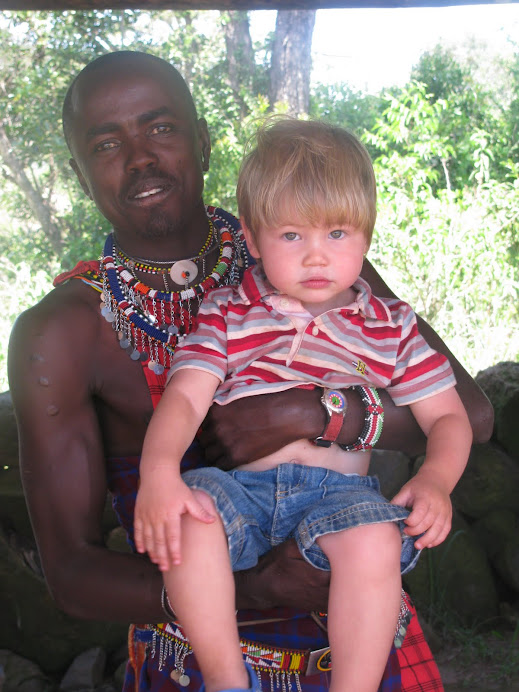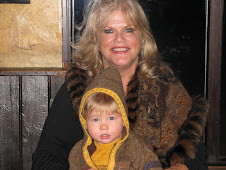[This posting started as one thing and seems to have ended up another. I was trying to capture the homicidal feelings that affect most mothers in terms of their children, often driving them to what one of my best friends calls Mother Rage. “It’s frightening what buttons the kiddy monsters can push at times,” she says. “Never in my life have I experienced rage like I did when the children were young.” The not-so-surprising thing about this dark side of mothering: few people will admit these kinds of feelings to themselves, let alone to others. Too dark? Yes, we can come close to betraying our own with a slap or spank or worse, but an animal instinct, what they call the reptile brain steps in, I believe, so that we turn ultimately to protecting them, even from ourselves.
Even though I’ve had my own close calls, hair’s breadth really, I can think of nothing worse than harming or losing my son. Yet in light of having a child, what’s really eluded me here is how much we depend on language to define, reveal, contain and explain ourselves; how sometimes it comes through, harbors us and gives us sanctuary from ourselves. And how at other times, it utterly fails us.
There are no words for certain things. Loss is inexplicable and perhaps should remain so. A hear an a half ago, my darling friend Lizzie died of breast cancer and the language, it just won’t come. There’s no one else in the world I equate so with treasure. (Now there’s a word.) Perhaps it would soothe me to talk about her and that cannonball-sized hole through my chest. Perhaps not. The heart knows what the heart knows; it speaks a different tongue, whether we are honored or horrifed by it. And does reliving things by speaking them out loud really console us in the end? The dead, the young before their time, are still gone; we can only speak longingly to them in our dreams and hope they hear us.]
*****
Last night, I was nestled in bed, trapped by mosquito netting and combing my favorite cookbooks (both SILVER PALATEs, NIGELLA EXPRESS, LA DOLCE VITA) for Christmas recipes. I felt like some sort of culinary mothership about to make an auspicious landing. Whether it would be hard or soft, I wasn’t certain. The mosquitoes hummed and hawed.
All afternoon long, some sort of word had been niggling at the underside of my forehead, a word I wasn’t sure existed (and there are those). Something unsavory, quicksilver, not right. And then it came to me and I was duly horrified by its release. Infanticide.
You see, off and on for several weeks now, my son has been nearly unrecognizable to me. A solemn, wary nine-month-old when I met him in Kazakhstan, upon his release at 11 months from the orphanage he burst into being, an unfathomably joyous gift, completely beribboned. I put my hand out, he cupped his cheek in it. We went outside, he squealed and jumped into the arms of the nearest neighbor. I woke up in the morning, he shrieked with delight. We had dinner, he gobbled every bite. I took him to school, he couldn’t wait to get in the door. We went everywhere together, his arms flung out in welcome, his smile never fading.
For months and months, for nearly a year, I was astonished by my good fortune. No one else could believe it either; Tiger was the most engaging child they’d ever met. And then he turned two.
Believe everything you hear. Hell hath no fury like a toddler scorned. Forked tongue, blistering eyes, wailing walls. Stubborn as a Soviet bloc, furious as bees without a hive, scheming as an underworld spy, black as a bat cave. Who’s going to blame a mom if she snaps a little? Or even a lot.
You read about it nearly every day. Mothers -- good mothers, calm mothers, church-going mothers -- who lose it all in one fell swoop while their children are in the bathtub, near the oven, in their hair, out at play, in the back seat. They pick up the nearest thing, an every day sort of thing, and do the unthinkable, the unspeakable. Spending the last of themselves as if they’d never had a beginning.
Of course, there are words or ideas that don’t deserve to exist, schemings and surrenderings and such; the above is one of them. But there are also events and experiences that refuse to be named, one of the things I both love and loathe about language. It is imprecise, slippery, changing just as you have it within your grasp. Our mother tongue, such as it is, is never meant to be held, close or for long. It slips from us in moments of horror and triumph, at the best of times and in times we cannot bear.
Not long ago and because of Tiger, I thought about the nameless, the happenings we cannot put our finger on, and one of them came to me, once again unbidden. What do you call yourself when you lose a child? Certainly, there is a calling for every other kind of loss, isn’t there? Widower, divorcee, motherless, orphan. But once you have been a parent and your son or daughter dies, what and who are you then? Childless? Minus one? Or by far the cruelest, child free?
Tiger tears at the world. He slams inside of his high chair, demonic and desperate, riding it like a rocking horse, rattling the kitchen’s bones. He slaps at Sandy, the Ridgeback from next door, yelling “Stop it!”; she continues to lick his hands, no matter what. He screams and rails and stamps his feet and bangs his fists. He throws his supper plate, full of food, like a Frisbee across the porch and laughs wickedly and wisely. He hurls himself against my embrace, banging his head on mine. And it hurts like hell.
Later, as I change Tiger into his pajamas, my son goes, “Owie,” and rubs his crown. “Do you want me to kiss it?” Yeth, he says and I do and I ask him if it’s better. Yeth, he says again. “My head hurts too. Can I have a kiss?” He lights up, yet serious as all get out, and kisses my forehead. Better, I say, that feels better. “Again!” he shouts, diving into me, giggling, willing to give everything he’s got. To the world. To me.
And there you are, suddenly found, maybe even found out. You are knocked sideways and upright and, best of all, together.
And I know what I have been afraid to know, whether it is in a word or a paragraph or pages. That this thing, this thing called love, this motherhood about which I have felt so clueless and will probably often continue to be, it is so not for the faint of heart. But oh, how fierce a heart can become. If only I let it.
Tuesday, December 22, 2009
Subscribe to:
Comments (Atom)









